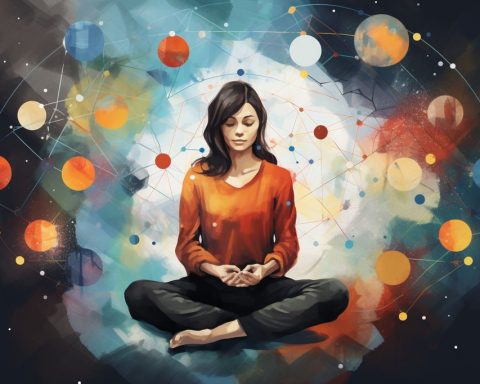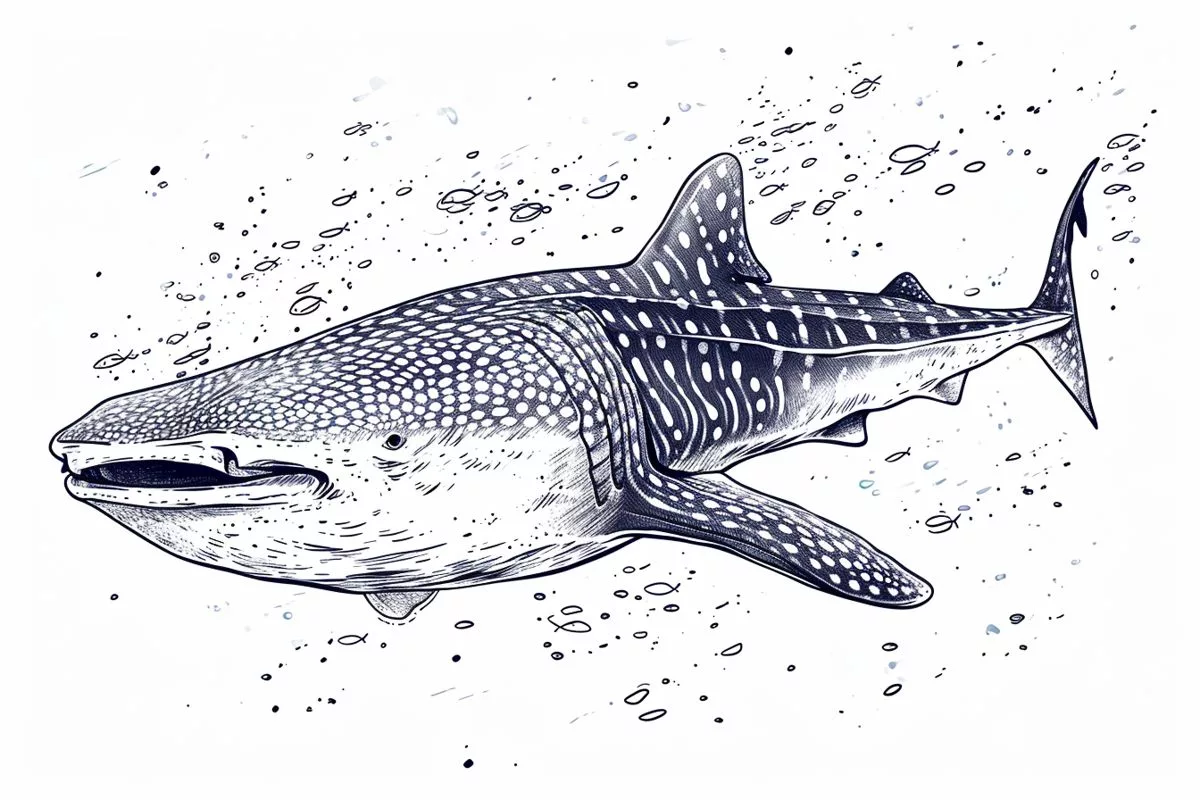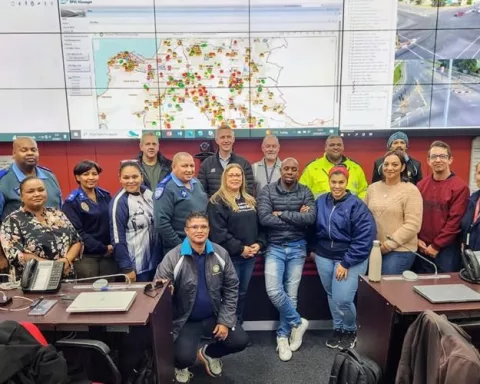Mindfulness is a practice rooted in ancient Eastern philosophies that helps one stay rooted in the present moment and counteract tendencies towards anxiety and depression. It can be fostered through meditation but can also be integrated throughout the day. Mindfulness nurtures compassion and reshapes our emotional landscape, guiding us towards a more satisfying and serene existence. It offers a solution for individuals navigating the persistent stress, anxiety, ecological calamities, and humanitarian emergencies of our current world.
What is mindfulness?
Mindfulness is a concept rooted in ancient Eastern philosophies that has evolved over time. It is a conscious and keen awareness of the present moment, meant to keep us rooted and open to the current moment. Mindfulness can be fostered through meditation, but can also be integrated throughout the day to counteract tendencies towards anxiety and depression. Nurturing compassion and reshaping our emotional landscape can guide us towards a more satisfying and serene existence.
In our current world, characterized by persistent stress, anxiety, ecological calamities, and humanitarian emergencies, a vast number of individuals are searching for strategies to navigate these tumultuous waters. An enduring solution, rooted in ancient Eastern philosophies, is mindfulness, a concept intimately linked to meditation. This concept of mindfulness has evolved over time. Originally, the Pali term ‘sati’, the origin of mindfulness, denoted “recollection”. This involved recalling one’s moral code and the appropriate behavior in each situation. Today, however, it is typically understood as “a conscious and keen awareness of the present moment”.
Lucy Draper-Clarke, a respected researcher and author of The Compassionate Activist, explains this practice of mindfulness as one of attentiveness. She views the mindfulness practice as a tool that keeps us rooted in the present moment. It utilizes our senses, our respiration, or our bodies, much like a yoga practice. Consequently, mindfulness signifies an openness to the current moment, a liberation from the constraints of the past and future. It provides an escape from the depressive thoughts often tied to past regrets and anxiety, typically linked to future uncertainties.
The Impact of Mindfulness
Studies indicate a connection between tendencies of anxiety or depression and where the mind customarily dwells. Anxiety often presents itself in individuals whose minds are constantly fixated on the future, worrying about forthcoming events. On the other hand, those grappling with depression tend to dwell on past incidents or perceived missteps. Mindfulness effectively frees you from these tendencies by securing your focus in the present moment, thereby fostering a sense of discernment.
Draper-Clarke further links mindfulness to the nurturing of compassion. If the current moment is filled with discomfort, whether it’s related to a friend’s distress or our own, we bring compassion into play. Indeed, mindfulness and compassion are viewed as interwoven, mutually enhancing each other in the path of personal development.
Mindfulness Practices
Mindfulness is often fostered through a meditative practice, encompassing sitting quietly and directing the mind towards the senses or the breath. However, mindfulness is not solely limited to meditation sessions; it can be integrated throughout the day. Draper-Clarke advises treating meditation as a daily routine, similar to brushing your teeth or showering – a form of “mental cleanliness”. This ensures regularity and prevents us from reverting to less healthy habits, like mindlessly surfing the web or watching repetitive news stories.
In The Compassionate Activist, Draper-Clarke distinguishes five types of contemplative practices: calming, insight, positive qualities, engagement, and shadow integration. The soothing practices, such as taking deep abdominal breaths or executing expressive movements like dance and yoga with full consciousness, prime the mind for meditation by pacifying the heart and mind.
Insight practices serve to enhance self-awareness, providing awareness of our habits. By continually returning our minds to the present moment, we can free ourselves from tendencies towards depression and anxiety. Practices that nurture positive, societal qualities like curiosity, wonder, compassion, joy, and gratitude are also promoted. These qualities, inherent elements of our human nature, assist in counteracting the brain’s negativity bias.
Navigating Emotional Landscapes
Facing our challenging emotions rather than vilifying them can also prove beneficial. By utilizing these emotions to gather insights about our current state and needs, we can learn to observe our experience without being overpowered by it.
Draper-Clarke imparts a poignant piece of wisdom for those wishing to redirect their lives, citing the adage that there are 84,000 Dharma doors, denoting 84,000 unique ways to discover the truth. However, the truth here is personal—it’s your truth. It is crucial to tap into your happiness, your delight, your satisfaction, and ease, and use these feelings to guide you towards practices that will be the most advantageous during different phases of your life.
In summary, the mindfulness practice, as articulated by Draper-Clarke in her compassionate activism, charts a course towards a balanced, well-rounded life. It urges us to stay present, nurture compassion, and reshape our emotional landscape, guiding us towards a more satisfying and serene existence.
1. What is mindfulness?
Mindfulness is a concept rooted in ancient Eastern philosophies that promotes conscious and keen awareness of the present moment, helping individuals counteract tendencies towards anxiety and depression. It can be fostered through meditation but can also be integrated throughout the day to nurture compassion and reshape emotional landscapes.
2. How does mindfulness impact mental health?
Research indicates that anxiety and depression are often linked to where the mind habitually dwells, whether fixated on the future or dwelling on the past. Mindfulness frees individuals from these tendencies by securing focus in the present moment, fostering a sense of discernment.
3. What are some mindfulness practices?
Mindfulness is often fostered through meditation, but it can also be integrated throughout the day. Draper-Clarke distinguishes five types of contemplative practices: calming, insight, positive qualities, engagement, and shadow integration. Practices that nurture positive, societal qualities like curiosity, wonder, compassion, joy, and gratitude are promoted.
4. How can one navigate emotional landscapes through mindfulness?
Rather than vilifying challenging emotions, individuals can utilize them to gather insights about their current state and needs. By observing experiences without being overpowered by them, individuals can learn to redirect their lives towards practices that are most advantageous during different phases of their lives.
5. What is the connection between mindfulness and compassion?
Mindfulness and compassion are viewed as interwoven and mutually enhancing each other in the path of personal development. Mindfulness practice fosters compassion by bringing mindfulness to moments of discomfort, whether related to a friend’s distress or their own.
6. How can one incorporate mindfulness into their daily routine?
Mindfulness can be incorporated into daily routines, similar to brushing teeth or showering, to nurture regularity and prevent individuals from reverting to unhealthy habits. Soothing practices like taking deep abdominal breaths or expressive movements like yoga with full consciousness, prime the mind for meditation by pacifying the heart and mind.










